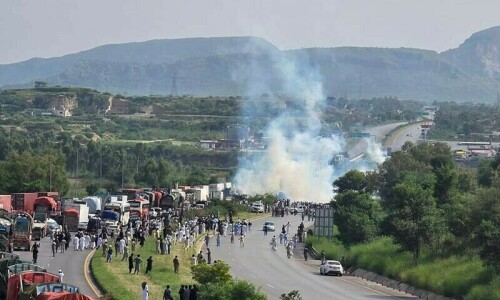KARACHI: The Sindh government has said that it has started execution of its “Pro-poor social protection and economic sustainability” initiatives for which the provincial budget of Rs34 billion had been set aside, it emerged on Wednesday.
A statement issued from Sindh Chief Secretary Syed Mumtaz Ali Shah said that the chief secretary presided over a meeting of steering committee to oversee the implementation of the initiatives.
The meeting was attended by Haris Gazdar, special assistant to chief minister of Sindh for special protection, finance secretary Syed Hassan Naqvi and other officials.
“The Sindh government has earmarked Rs34.2 billion in the annual budget for the fiscal year 2020-21 to help citizens affected by the Covid-19 pandemic,” the statement quoted the chief secretary as saying in the meeting.
“This budget was made to ensure food security, reduce inflation and unemployment. Some Rs20 billion is proposed for cash transfers to those affected by coronavirus under the Sindh Peoples Support Programme through the Social Protection Strategic Unit (SPSU) and Social Welfare Department (SWD).”
It said that Rs5bn were allocated for a soft loan programme for small and medium enterprises in the province while subsidies of Rs1bn would be provided to purchase rice seeds and another Rs1bn for pesticide.
The farmers, the statement said, would be offered Rs1bn for fertilisers for the landholding of 25 acres or less.
“The chief secretary directed the secretary of agriculture to develop a mechanism and depute grade 19 officers as focal persons for each subsidy,” said the statement and added that he also stated that Rs500 million was set aside to support technology-based start-ups, incubators, and accelerators, whereas Rs700m had been earmarked to support information technology (IT) interventions and innovations.
“In this regard, the chief secretary issued directives to secretary of investment to engage private universities for technology based start-ups. Data in this regard will be collected from various sources, including Nadra, BISP, census and the registers maintained by the polio workers,” said the statement.
Published in Dawn, July 9th, 2020













































